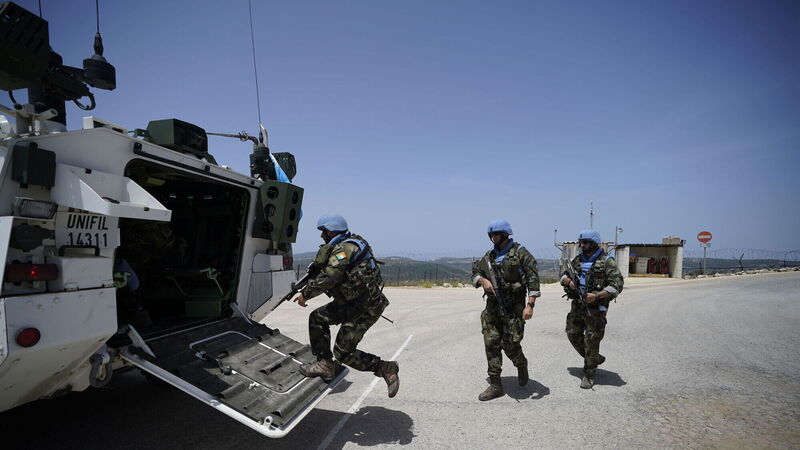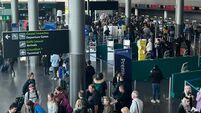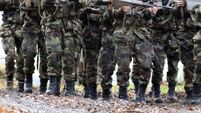Irish soldiers in Lebanon: ‘It’s tough but you have to get on with it’

Soldiers before the visit of Tanaiste Micheal Martin to meet members of the 124th Infantry Battalion at Camp Shamrock in Debel during a visit to Lebanon to meet Irish troops serving with the United Nations Interim Force Lebanon (Unifil). Picture date: Sunday May 19, 2024. PA Photo. See PA story IRISH Lebanon. Photo credit should read: Niall Carson/PA Wire
Skyscrapers and minarets stretch up through a hazy smog that blunts the sunlight over lovely, troubled Beirut.
Tall cypress trees twist towards the sky along stretches of Mediterranean idyll just outside the city: sandy beaches lined with jaunty sun umbrellas, lemon groves and splashes of billowing pink and magenta bougainvillea.














